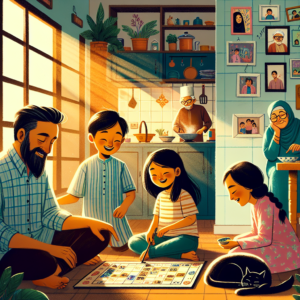Marriage Equality: The Unfolding Battle for Love and Justice Worldwide
[caption id="attachment_35116" align="alignnone" width="874"] Family Life[/caption]
Marriage equality has emerged as a pivotal issue in the ongoing struggle for human rights and social justice across the globe. As societies evolve, the recognition of love in all its forms has gained momentum, challenging traditional norms and advocating for the rights of LGBTQ+ individuals. This article explores the multifaceted dimensions of marriage equality, examining its historical context, legal milestones, social movements, ongoing challenges, and future trends.
Understanding Marriage Equality: A Global Perspective on Love and Justice
Marriage equality refers to the legal recognition of marriage between individuals regardless of their gender or sexual orientation. This concept embodies the principles of love, dignity, and justice, asserting that all couples should have the same legal rights and protections. Globally, marriage equality remains a contentious issue, with varying degrees of acceptance and legal recognition. While some countries have embraced marriage equality, others continue to uphold discriminatory laws that deny same-sex couples the right to marry. This disparity highlights the ongoing struggle for justice and equality, as advocates work tirelessly to dismantle barriers and promote acceptance in diverse cultural contexts.
Historical Context: The Evolution of Marriage Rights Across Different Cultures
The history of marriage rights is deeply intertwined with cultural, religious, and legal frameworks that have evolved over centuries. In many societies, marriage has traditionally been viewed as a union between a man and a woman, often rooted in religious beliefs and societal norms. However, as social attitudes have shifted, so too have the definitions and implications of marriage. The late 20th century marked a significant turning point, with the rise of LGBTQ+ rights movements advocating for the recognition of same-sex relationships. Historical milestones, such as the decriminalization of homosexuality and the acknowledgment of civil partnerships, laid the groundwork for the eventual push toward marriage equality in various regions around the world.
Legal Milestones: Key Court Cases and Legislation Shaping Marriage Equality
The legal landscape of marriage equality has been shaped by landmark court cases and legislative actions that have redefined the institution of marriage. In 2003, the U.S. Supreme Court's decision in Lawrence v. Texas decriminalized same-sex sexual activity, setting a precedent for future legal battles. This was followed by the 2015 ruling in Obergefell v. Hodges, which legalized same-sex marriage nationwide, marking a significant victory for LGBTQ+ advocates in the United States. Internationally, countries such as the Netherlands, Canada, and Argentina have also enacted laws recognizing same-sex marriage, often following extensive legal challenges and public advocacy. These milestones reflect a growing recognition of the importance of marriage equality as a fundamental human right.
Social Movements: Activism and Advocacy in the Fight for Equal Rights
Social movements have played a crucial role in advancing marriage equality, mobilizing communities and raising awareness about the injustices faced by LGBTQ+ individuals. Grassroots organizations, advocacy groups, and coalitions have emerged worldwide, employing various strategies to promote equality, including public demonstrations, educational campaigns, and legal challenges. The Pride movement, which celebrates LGBTQ+ identities and rights, has become a powerful platform for advocating marriage equality. Activists have harnessed social media to amplify their messages, engage allies, and foster solidarity across borders. These efforts have not only contributed to legal changes but have also shifted public perceptions, fostering a more inclusive dialogue around love and justice.
Challenges Ahead: Ongoing Opposition and the Struggle for Global Acceptance
Despite significant progress, the fight for marriage equality faces ongoing challenges and opposition. In many countries, conservative religious and political groups continue to resist the recognition of same-sex marriage, often framing their arguments around traditional values and family structures. Discrimination, stigma, and violence against LGBTQ+ individuals remain pervasive, particularly in regions where cultural norms are deeply entrenched. Additionally, the rollback of rights in some jurisdictions poses a threat to the gains made in the marriage equality movement. Activists must navigate these complexities, working to counteract misinformation and foster understanding while advocating for comprehensive legal protections.
The Future of Marriage Equality: Trends and Predictions for Love and Justice Worldwide
Looking ahead, the future of marriage equality appears to be a dynamic and evolving landscape. As societal attitudes continue to shift, it is likely that more countries will embrace marriage equality, recognizing it as a fundamental human right. The increasing visibility of LGBTQ+ individuals and their stories is fostering greater empathy and understanding, which may influence public opinion and policy decisions. However, the movement must remain vigilant against potential backlash and strive for intersectionality, ensuring that the rights of all marginalized communities are prioritized. Ultimately, the trajectory of marriage equality will depend on the collective efforts of activists, allies, and advocates committed to fostering a world where love and justice prevail for everyone.
In conclusion, the unfolding battle for marriage equality is emblematic of a broader struggle for human rights and social justice worldwide. As we reflect on the historical context, legal milestones, and social movements that have shaped this issue, it is clear that the fight is far from over. Ongoing challenges and opposition underscore the need for continued advocacy and activism. However, the progress made thus far offers hope for a future where love is recognized and celebrated in all its forms, paving the way for a more just and equitable world.
